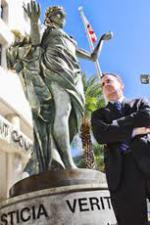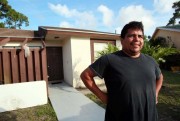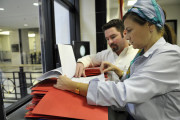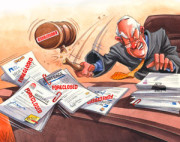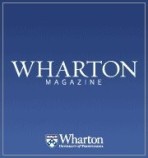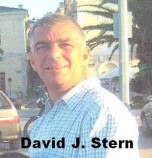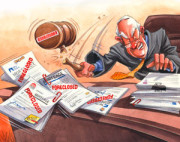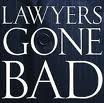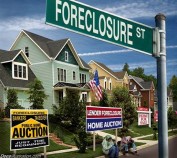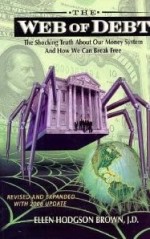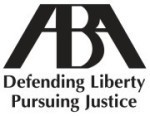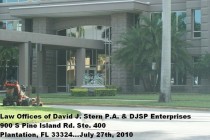Home Mortgage Foreclosure
Petition No. 13-1063 Writ of Certiorari SCOTUS (closed)
Paula Perez-Rodriguez v. The Bank of New York
Mellon, et al.
QUESTION PRESENTED FOR REVIEW
Whether borrowers have the right under the Due Process Clause of the Fourteenth Amendment to contest residential foreclosures that use the same fraudulent
documentation numerous branches of the federal government and 49 state Attorneys General condemned and prohibited through various multibillion dollar settlements?
US Supreme Court docket page - Petition No. 13-1063
Petition denied May 5, 2014; time for rehearing expired
FORECLOSING IN A HURRICANE, 679 Stetson L R 41
Foreclosing in a Hurricane (law review)
679 Stetson Law Review 41
Matt Weidner STETSON LAW REVIEW AND FORECLOSING IN A HURRICANE
Matt Weidner Mortgage Notes Are NOT NEGOTIABLE INSTRUMENTS
Motion to Dismiss Foreclosure 1
Motion to Dismiss Foreclosure 2
Pro se homeowner dies after collapsing in court
Valrico man dies after collapsing in court
Tampa Bay Times
By Rachel Crosby, Times Staff Writer
Tuesday, March 3, 2015
TAMPA — A 67-year-old Valrico man died Tuesday morning after collapsing in a Hillsborough courtroom during a hearing on the pending foreclosure of his home.
Frank Collelo was with his wife, Antoinette Collelo, 57, when he fell to the floor in the Hillsborough County Circuit courtroom of Judge Wayne S. Timmerman around 9 a.m., according to Cristal Bermudez, a public information officer with the Hillsborough sheriff's office.
Bermudez said deputies administered CPR to Collelo in court until emergency services arrived and transported Collelo to Tampa General Hospital. He was pronounced dead there around 9:45 a.m.
Medical calls in court are common, said Maj. Jim Livingston, with the sheriff's court operations division. But in the nearly six years Livingston has worked at the court, he doesn't remember a death.
"Obviously, there's a lot of stress here,'' he said. "It's not uncommon to have EMS here a couple of times a week, sometimes a couple of times a day."
Collelo's house went into foreclosure last year. The property was in his possession following a divorce in 2010.
The county medical examiner had not yet determined a cause of death. Read more
- Frank Joseph Collelo Obituary
FRANK JOSEPH COLLELO
_________________________________________________________________
Foreclosure REVERSED! No Evidentiary Basis For Foreclosure
Foreclosure REVERSED! No Evidentiary Basis For Foreclosure
My favorite part of this oral argument is how quick the homeowner attorney is to admit his (few) weak points…Judge Crenshaw continues to ask him very tough questions and tries to get him to concede a point…several good exchanges…he quickly admits, then gets right into responding directly to the panel. This case really is one of the finest examples of perfect exchanges and direct responsiveness between judges and the attorney. Watch how the interruptions and exchanges are so politely and deftly handled on both sides of the bench. And wowza, just watch how precise Judge Silberman is when he gets into the bank attorney around 15:00. And then ouch…listen to the
FORECLOSURE REVERSED- Zero Evidence in a Foreclosure Case
Matthew Weidner
Published on May 24, 2015
This case is a sad testament to what's happening in foreclosure courtrooms, listen to the presentation of the homeowner attorney describe how the judgment was entered with no evidence...much less any competent evidence of the amounts claimed by the foreclosing plaintiff. This case resulted in an excellent written opinion, but pay particular attention to detailed and dignified questions of the appellate panel and the crisp and precise responses of foreclosure counsel. He clearly impresses the panel with his command of the facts, and then listen to him admit a weak point at the 6:14 mark. I just love to see how Judge Crenshaw hammers down a precise point...it shows how you had better have your facts straight....but one of the finest examples of the dignity and respect that is very consistent of Florida's Second District Court of Appeals. Written opinion here (PDF below)
Weidner Law
250 Mirror Lake North
St. Petersburg, Florida 33701
BAC Home Loans Servicing, LP (the Bank), filed this action in May 2010. The complaint alleged that Boyette was in default and owed $115,697.24 plus interest and late charges. The complaint also sought reimbursement of costs for property inspections and attorney’s fees. One item properly introduced into evidence was a payment history delineating the principal amount, $115,697.24, hazard insurance premiums, late charges, and tax payments. The final judgment also includes awards for the other items sought in the complaint.
Values awarded in a foreclosure judgment must be based on competent, substantial evidence. Wagner v. Bank of Am., N.A., 143 So. 3d 447, 448 (Fla. 2d DCA 2014). Based on the testimony and the payment history in evidence, we conclude there is competent, substantial evidence supporting the principal, hazard insurance, late charges, and taxes. However, the Bank was also awarded interest, costs for property inspections, and attorney’s fees. These latter values fail for lack of competent, substantial evidence. See id. The final judgment states that interest accrued in the amount of $23,741.25. But there are no records or testimony reflecting how that amount accrued, and the only document regarding interest, the adjustable rate rider, does not provide enough information to establish the interest that accrued. Thus this portion of the judgment must be reversed. See Salauddin v. Bank of Am., N.A., 150 So. 3d 1189, 1190-91 (Fla. 4th DCA 2014).1 Too, the $945 for property inspections is not 1Because we reverse for an evidentiary hearing or trial to establish the remaining amounts due and owing, the court may allow evidence to be adduced on this established by testimony or other evidence in our record. See Wagner, 143 So. 3d at 448. Finally, the attorney’s fees of $1200 are not substantiated. Rather, the final judgment requires that we infer a flat fee because the breakdown of the fee award states that it was for "0 hours at $0.00 per hour." But the record does not reflect any agreement to a flat attorney fee; thus, this must be supported by other competent, substantial evidence. See id. Because the attorney’s fee is not so supported, we must reverse this portion of the judgment as well.
Default is established in this case, and the amount of principal, hazard insurance premiums, late charges, and taxes are supported by competent, substantial evidence. But because the other costs, namely interest, property inspection fees, and the attorney fees, are not, we reverse and remand the judgment for further proceedings to properly establish the amounts allegedly due and owing. See Sas v. Fed. Nat’l Mortg. Ass’n, 112 So. 3d 778, 779 (Fla. 2d DCA 2013).
SCARY- Florida Courts Adopt New Rules That Consumers "Abandon" Their Rights
14-0656 Barnsdale Holdings- Courts have issued new rules that find motions "abandoned" these new rules are not valid because they have not been authorized. These new rules put burdens on defendants that do not apply to plaintiffs.
U.S. Bank vs. Bartram, 5th DCA 2014 (YouTube)
Thomas D. Hall, The Mills Firm, for U.S. Bank. Mr. Hall's Biography
Mr. Hall is a retired Clerk of the Florida Supreme Court
________________________________________
Appeal Video: Trial Court Rules That Consume Motions Are Waived, What?! March 30, 2015
This is nothing but crystal clear proof of the bias that exists against homeowners and consumers that is being institutionalized in courtrooms all across the state of Florida.
Retired Clerk of the Supreme Court, Tom Hall
Clerk of the Court, Tom Hall, Retires after 13 Years of Service at the Supreme Court, The Appellate Practice Section of The Florida Bar
A retirement ceremony was held at the Florida Supreme Court for Tom Hall, the 20th Clerk of the Court, on October 9 in the Courtroom. Mr Hall was appointed as Clerk in May, 2000. Together, with past work at the First and Third District Courts of Appeal, he has given 25 years of service to Florida's court system.
Key in his Supreme Court work as Clerk of the Court, Mr. Hall was quickly dealing with crucial issues as Bush v. Gore unfolded in his first year as clerk. Interestingly, he leaves after having worked through the technologically important launch of the mandated e-filing measure that began in early 2013.
Mr. Hall has received the prestigious James Adkins Award in 2009 (Appellate Practice Section, Florida Bar) and the 2012 J.O. Sentell Award (National Conference of Appellate Court Clerks) after having served as the group's president from 2008-09.
In addition, Mr. Hall has taught widely in academic, legal and judicial communities in his career.
Beyond the recognition given Tom Hall on October 11, the Supreme Court thanked him with the presentation of a proclamation earlier in 2013.
The Supreme Court Courtroom was filled to capacity for the ceremony, as family, friends and members of the court community came to honor his service.
_________________________________________________
Tom Hall, Clerk of the Florida Supreme Court, Looks Toward Retirement, Full Court Press, Summer 2013
ROMAN PINO vs. THE BANK OF NEW YORK
Oral Argument May 10, 2012 - YouTube
Roman Pino vs. The
Bank of New York, Etc., Et. Al.
Supreme Court of Florida, Case No. 11-697
Matt Weidner blog
May 5, 2012
On Thursday May 10, 2012, the Florida Supreme Court will hear oral arguments in the extraordinary case of Roman Pino v. Bank of New York. Make sure to bookmark here to watch the arguments live, and in advance, click here and here and here and here to read all the briefs before hand. Read more
Top Fla. Court to Hear Landmark Foreclosure Fraud Case
This Week Despite Parties’ Agreed Dismissal
ABA Journal Law News Now
By Martha Neil
May 8, 2012
A hard-fought Florida mortgage foreclosure case seemingly had concluded—twice.
After the defendant homeowner contended that a mortgage assignment relied on in the complaint was fraudulent, the Bank of New York filed a voluntary dismissal of the
suit.
Then, when the Bank of New York filed a second, identical foreclosure case five months later, relying on a purported mortgage assignment dated after the dismissal of the
first suit, the homeowner, Roman Pino, sought sanctions in both cases. The dispute made it to the state's 4th District Court of Appeal before the parties agreed to settle and dismiss the appellate
case.
But in a divided December ruling (PDF), the state supreme court ordered the
parties to proceed with the appeal, noting that Pino had already filed his initial appellate brief on the merits. The high court found that it still had discretion to decide, despite the dismissal of
the appeal, the power of a trial court to address claimed fraud on the judicial system concerning a case that had already been dismissed, especially when such fraud could potentially extend far
beyond the instant matter.
"The question certified to us by the Fourth District Court of Appeal in this case transcends the individual parties to this action because it has the potential to impact
the mortgage foreclosure crisis throughout this state and is one on which Florida’s trial courts and litigants need guidance," the supreme court wrote. "The legal issue also has implications beyond
mortgage foreclosure actions. Because we agree with the Fourth District that this issue is indeed one of great public importance and in need of resolution by this court, we deny the parties’ request
to dismiss this proceeding."
Now the state's top court is about to hear oral arguments in a landmark case that could not only determine the authority of a trial court to award sanctions in a
previously dismissed matter but, banking and title company trade associations contend, devastate the state's real estate market and lending industry, according to accounts of the case by Duane Morris and the Palm Beach Post.
Already deluged with foreclosure cases, the state real estate market would be even more chaotic if property ownership was called into question and cases had to be
relitigated because of alleged past misconduct concerning already resolved cases, the trade groups argue. Meanwhile, would-be homeowners could find it impossible to get mortgages and clear title
because of the uncertainty.
However, expecting lenders to file court cases based on accurate documents isn't unreasonable, law professor Robert Jarvis of Nova Southeastern University tells the
Post.
"Will it be devastating? That's an argument the bankers have been saying all along, and it's ridiculous," he stated. "All anyone is saying is that bankers need to get
their paperwork in order."
Although Pino's most recent settlement with the bank is confidential, a satisfaction of mortgage was filed five months before the state supreme court agreed to review
the case, which originated in Palm Beach County Circuit Court, the newspaper notes. Read more
Lynn Szymoniak, Foreclosure Whistleblower, Says Bank Harassing 'The Living Hell' Out Of Her, Huffington Post
The next housing shock
CBS News 60 Minutes
by Scott Pelley
April 3, 2011
If there was a question about whether we're headed for a second housing shock, that was settled last week with news that home prices have fallen a sixth consecutive
month. Values are nearly back to levels of the Great Recession. One thing weighing on the economy is the huge number of foreclosed houses.
Many are stuck on the market for a reason you wouldn't expect: banks can't find the ownership documents.
It's bizarre but, it turns out, Wall Street cut corners when it created those mortgage-backed investments that triggered the financial collapse. Now that banks want to
evict people, they're unwinding these exotic investments to find, that often, the legal documents behind the mortgages aren't there. Caught in a jam of their own making, some companies appear to be
resorting to forgery and phony paperwork to throw people - down on their luck - out of their homes. Read
more
Foreclosure Hamlet - Supporting, Informing & Connecting People in Foreclosure
Foreclosure Hamlet Supporting, Informing & Connecting People in Foreclosure. Lisa Epstein and Michael Redman.
How 2 civilian sleuths brought foreclosure problems to light
McClatchy Newspapers
by Tony Pugh
October 13, 2010
PALM BEACH, Fla. — More than a year before lenders, law firms and document companies began owning up to widespread paperwork problems with their foreclosure filings, Lisa Epstein and Michael Redman
already knew that something was wrong — very wrong.
Redman, a former online automobile consultant, got his first taste of the problem in early 2008, when he tried to help a relative who was facing foreclosure. As he tried
to determine which of three or four supposed lenders held the note, Redman, 35, realized that not only did he not know the answer, neither did any of the companies that were asking for payment.
Epstein, a nurse who cares for cancer patients, also is going through foreclosure. She got her baptism in the world of shoddy foreclosure paperwork in the summer of 2009, however, when she tried to
help a brain tumor patient keep her home.
Epstein helped draft a letter challenging the foreclosure because, as in Redman's case, it was unclear from court papers who owned the home's mortgage. After arriving at the summary judgment hearing
in her nurse's uniform, an emotional Epstein, 45, watched as the ill woman read their letter aloud in court. When the opposing attorneys never showed, the judge refused to finalize the foreclosure.
The woman remains in her home as the legal wrangling continues.
For Epstein, who often helped her patients navigate disputes with their health insurance companies, the role of advocate wasn't new — but the thrill of a courtroom victory was. "It was like something
struck inside me, like this is what I'm compelled to do. I can be a nurse for people caught in this foreclosure crisis," Epstein said. "I remember thinking, 'I'm not an attorney, and there are
definite obstacles, but maybe there's a role for me.' And I ran back to the hospital like I had wings. I felt like this is my purpose."
Foreclosure Hamlet on the Dylan Ratigan Show
Lisa Epstein of Foreclosure Hamlet on the Dylan Ratigan Show and William Black, October 26, 2010, watch on YouTube
Miami Herald: Florida Mortgage Fraud
In 2004 mortgage professional Bill Trudelle approached Florida Attorney Charlie Christ at a Florida Mortgage Broker meeting revealing his knowledge of several high ranking FAMB officials and attorneys committing mortgage and foreclosure fraud against thousands of citizens. Christ's office had the Department of Financial Regulation investigate, who let the FAMB investigate its self then closed the investigation. No one wanted to listen, now five years later all that was reported by Trudelle has been proven as true. Instead of reducing or stopping mortgage and foreclosure fraud, theses government officials financed with campaign contributions from the crooks ignored the problem. Trudelle whose life was threatened, attacked and harassed by FAMB officials and attorney's like Didier Malagies, and Anthony Woodward were helped in getting away with their scheme by State Attorney Mark Ober, who falsified testimony and removed evidence from Trudelle's case file. Proof of Florida Mortgage corruption at http://www.WoodwardLaw.com
CNN Refuses To Air Lisa Epstein Interview
Florida Pro Se Litigant blog
October 4, 2010
October 4, 2010, CNN contacted foreclosurehamlet.org founder Lisa Epstein for an interview. Lisa went to the CNN studios and there was a 30 minute interview. However, when 5pm came and the time to
air the segment on foreclosures, CNN ducked and ran. They instead ran a story of a truck crash were pigs were scattered all over the highway. What happened to the CNN interview of Lisa? Well, CNN
called Lisa and told her the story was to complex for their viewers and to confusing. They decided not to put her comments before America. Read more
The Florida Bar: Weathering Florida's Foreclosure Crisis A service of the Bar's Consumer Protection Law Committee
Florida Courts in Crisis - Total Meltdown Coming?
Under Threat of Foreclosure
St. Petersburg Times
March 20, 2011
Florida's foreclosure crisis seems like a never-ending nightmare. Mortgages are caught up in MERS, an electronic database that most homeowners never heard of until the foreclosure crisis. Homeowners
in foreclosure are worried that robo signing by lenders' employees may have led to mortgage fraud. The mortgage process itself is under scrutiny by the courts and government regulators who are
asking: How could something so simple as a home loan go so terribly wrong? Read
more
Why The Foreclosure Mess Cannot Be Solved
Why the Foreclosure Mess Settlement Proposal Can't Fix the Damage
Daily Finance
by ABIGAIL FIELD
March 18, 2011
Ever since this fall, when the mortgage industry's robo-signing scandal first broke, people have been aware that banks have been illegally foreclosing on homes. Now there's a huge fight over what to
do about that, mostly focused on a 27-page proposal that was supposed to represent the consensus of the 50 state attorneys general, but apparently doesn't. On top of that effort came a report of a
"shock and awe" modification push from the federal government, but as Yves Smith at Naked Capitalism details, it's neither good policy nor practical. Read more
Pro se legal representation refers to the instance of a person representing himself or herself without a lawyer in a court proceeding, whether as a defendant or a
plaintiff and whether the matter is civil or criminal. Pro se is a Latin phrase meaning "for oneself". This status is sometimes known as propria persona (abbreviated to "pro per").
Florida is a judicial state when it comes to foreclosure. That means your lender has to sue you in court in order to foreclose on your property. In a non-judicial state such as Georgia, the mortgage
document contains a "power of sale clause". The clause gives the lender pre-authorization to sell your property without a court order. If you've just been served a foreclosure summon, do not panic.
Your worst mistake would be to ignore it. If you do not respond to the complaint, you've given an easy victory to the mortgage company. Usually you have 20 to 30 days to respond; if you do not
respond, a default judgment will be entered against you, and eventually you will lose your house. read more
Relocation Assistance, a.k.a. Cash for Keys
As Homeowners’ Dreams Die, He’s the Undertaker
By DAVID STREITFELD
May 6, 2010
New York Times
LAKE VILLA, Ill. — If you see Joseph Laubinger on your doorstep, start packing. His courtly presence means you have exhausted all excuses, arguments and options for keeping your house. “It’s like I’m a doctor,” said Mr. Laubinger, an agent here for big lenders. “People ask me how much time they have left.” Hardly any. Legally, they have already lost ownership. If they do not respond to the carrot the lenders offer — as much as $5,000 in cash in exchange for leaving the house in good order — he employs the stick: the county sheriff, who evicts them.
Strategic Default: Walking Away from Mortgages
60 Minutes, CBS News
Morley Safer reporting
May 10, 2010
Despite some indications that the economy is recovering, the housing market remains a disaster area. Currently, about seven million homeowners are behind on their
mortgages and that number is only getting worse.
Banks, with the help of the government, are offering some relief to homeowners who've lost jobs and just can't meet their payments.
But there's a growing number who can pay but are simply walking away from houses that are now worth as little as half of what they paid for them.
It's called "strategic default." People have done the math and decided making those monthly payments is just throwing money away, leaving the mortgage holders - the
banks - as zookeepers of an ever-growing parade of white elephants. Read more
You Walk Away, Strategic Default
You Walk Away Empowering Homeowners Through Intelligent Strategic Default
As seen on CBS News, 60 Minutes program May 9, 2010
Millions of homeowners are facing these tough questions. Our goal at YouWalkAway.com is to empower homeowners through the foreclosure process by providing foreclosure assistance in the form of tools,
resources, support and peace of mind. Since 2007, we have helped over 5,000 people prepare and strategically navigate through the foreclosure process intelligently and efficiently.
Wharton Magazine: The U.S. residential real estate market is in a full-blown crisis
The U.S. residential real estate market is in a full-blown crisis. And there’s no easy way to solve
it
Wharton Magazine, Winter 2011
No Magic Bullet, By Steven Kurutz
Equally troubling is the number of homeowners underwater, with mortgage loans that exceed the value of their property, which ticked up to 23.2 percent, meaning nearly 14 million U.S. homes have
negative equity—a statistic unlikely to shore up home values. All of this has economists, politicians and the American people wondering how much longer the country will remain mired in the housing
mess, and how we can pull ourselves out without sliding into the no-growth economy of 1990s Japan. Wharton Magazine
Wave of Foreclosures and Vacant Homes Sparks Surge in Quit-Claim Deed Fraud
ABA Journal, Law News Now
By Martha Neil
March 18, 2011
Apparently seeing an opportunity in the wave of mortgage foreclosures, opportunists are using vacant homes as an invitation to work a scam, Florida officials say.
By filing a fraudulent quit-claim deed they can tie up the title and either live in the home themselves or rent it out while the true ownership is being sorted out, reports the Palm Beach Post.
"It's terrible when someone steals your identity, but imagine what it's like when someone steals your home," says Palm Beach Clerk of Court Sharon Bock. "Some of this isn't just isolated incidents,
it's literally criminals with the intent to defraud."
In one such case, Heather and Ronald Nicholls say they weren't even in the country when a notary supposedly witnessed their signatures and executed a deed on the Loxahatchee home they owned and paid
some $400,000 for before the real estate market crashed. But the notary tells the newspaper the signature on the document isn't his, the Post recounts.
The couple let the home go into foreclosure when they had to move to Barbados to get work. A real estate agent trying to find a buyer for a short sale that would help get the couple off the hook
discovered that it was occupied last summer.
Initially quit-claimed to a business owned by Teresa York, the house has now been quit-claimed again to her individually. She says she has done nothing wrong and paid the couple $2,000 to take over
their mortgage. Since then, she says, she has spent $20,000 fixing up the 4,400-square-foot home.
She admits she hasn't made any rent or mortgage payments since the summer but says a lawsuit filed by Heather and Ronald Nicholls over the transaction is the reason why. "I was waiting to get this
court thing taken care of," she tells the newspaper.
Authorities are investigating the couple's allegations of fraud.
David J. Stern: The man behind the crumbling foreclosure empire
By Diane C. Lade, Sun Sentinel
March 15, 2011
Attorney David J. Stern has spent much of the past year in the spotlight, as reports of legal troubles plaguing Florida's home foreclosure system continue to emerge.
Stern's Plantation-based foreclosure practice is one of eight under investigation by the Florida attorney general for allegations of fabricating documents, slipshod paperwork and questionable
fees.
The mortgage lenders who once loved him have severed their business ties with him. DJSP Enterprises, a company he created to handle nonlegal foreclosure work, has been sued by former employees who
claim the company violated layoff notification laws as it slashed its staff to about 50. Last week, Stern announced that he will cease the law firm's home repossession operations
March 31.
The details of the lifestyle Stern, 50, built from the hundreds of millions his law firm and DJSP made repossessing people's homes are legend: an armada of luxury vehicles that includes Porsches and
Ferraris, two private jets, an 8,300-foot, $7.2 million vacation cabin near Vail. Read more
Collapse of David J. Stern law firm throws foreclosure courts into disarray
St. Petersburg Times
by Susan Taylor Martin, Times Senior Correspondent
March 8, 2011
As many as 20,000 foreclosure cases in the Tampa Bay area have been left in limbo by the virtual collapse of the David J. Stern Law Firm, once Florida's most prolific foreclosure "mill.'' The firm's
implosion gives many borrowers at least a temporary reprieve from foreclosure and means that thousands of cases could be dismissed unless lenders quickly hire other attorneys. "It's a mess,''
Pinellas-Pasco Chief Judge Thomas McGrady said Tuesday.
In a letter dated March 4, Stern notified McGrady and other chief judges that as of March 31 the firm will end its involvement in all 100,000 foreclosure cases statewide in which it is still listed
as attorney of record. Bank of America and other Stern clients jettisoned the firm last year because of its allegedly sloppy, fraudulent practices, but in many cases have yet to hire anyone to
replace him.
In his letter to the judges, Stern acknowledged that his firm is basically out of business. "We have been forced to drastically reduce our attorney and paralegal staff to the point where we no longer
have the financial or personnel resources to continue to file motions to withdraw in the tens of thousand of cases that we still remain as counsel of record,'' he wrote. "Therefore it is with great
regret that we will be ceasing the servicing of clients'' by month's end.
Attached to each letter was a list of Stern cases in that particular judicial circuit. In Pinellas-Pasco, the list is 251 pages with a total of about 10,000 cases - a third of all pending
foreclosures. McGrady said his staff is working on orders requiring banks to show cause why their foreclosure suits should not be dismissed if they fail to get timely substitute counsel. In some
cases, McGrady said, a new attorney has appeared but without proper legal authority. In other cases, more than one law firm has claimed to represent the same bank. "Then what do we do?'' he
asked.
In Hillsborough County, Stern is still attorney of record in just under 10,000 cases, of a total of 25,000 pending foreclosure suits. Read more
Tampa Law Firm Probed Over 'False' Documents Filed in Foreclosure Cases - LAW.COM
Tampa Law Firm Probed Over 'False' Documents Filed in Foreclosure Cases - LAW.COM
The Florida attorney general is investigating one of the nation's largest foreclosure law firms over allegations it falsified legal documents to expedite foreclosure
cases filed by its lender clients.
Tampa-based Florida Default Law Group "appears to be fabricating and/or
presenting false and misleading documents in foreclosure cases," according to the attorney general's Economic Crimes Division in Fort Lauderdale, which is leading the investigation.
The office of Attorney General Bill McCollum is reviewing consumer complaints, taking depositions and researching the company's business practices to determine whether
Florida Default has violated any state laws. Read
more
Associate AG to Testify that Florida Foreclosures are in ‘Total Disarray’
ABA Journal Law News Now
by Martha Neil
January 11, 2011
An associate state attorney general is expected to tell state lawmakers today that the state's foreclosure system is in "total disarray." According to her prepared testimony, Patricia Conners will
tell the Senate Banking Committee of a "virtual morass" of fake and faulty documents, to which so-called "foreclosure mill" have contributed significantly, reports the South Florida Sun-Sentinel.
Read more
Why Are Bailed-Out Banks Breaking into Struggling Borrowers’ Homes?
Last week Florida resident Nancy Jacobini revealed that an agent hired by her bank broke into her home after she fell behind on her mortgage payments. Thinking she was
being burglarized, Jacobini called 911. We speak to Jacobini’s lawyer Matthew Weidner and Bruce Marks, the founder and CEO of the Neighborhood Assistance Corporation of America, a housing services
organization that’s been calling for a national moratorium on foreclosures for years. [includes video and rush transcript] Read more
Sloppy foreclosure process could undermine Florida
Why sloppy foreclosure process could undermine Florida
St. Petersburg Times
by Robert Trigaux
Times Business Columnist
October 3, 2010
There's no polite way to put this. A growing cancer is infecting the backlogged legal process of foreclosing on hundreds of thousands of homes in Florida.
It's endangering the legal and economic stability of this state. And it's exposing an appalling lack of leadership, first for allowing such a breakdown in the legal
system and, now, for failing to own up to this mess and get it fixed
How bad is it? Laws governing who actually owns a foreclosed home are becoming so suspect a new buzzword is emerging: blighted titles. Even the tepid rebound of
Florida's economy may face crippling delays in resolving hundreds of thousands of foreclosures in the Sunshine State.
What's wrong? The accuracy and truthfulness of an immense flood of legal documents and affidavits some lenders and their hired lawyers use to foreclose on homes have
come under such critical attack that some major banks are suspending their court cases pending internal reviews.
"Sheer volume allowed perversions in the legal system to be overlooked," says Mark Stopa, a Tampa lawyer who helps people fight foreclosures.
"This has long-term catastrophic consequences," adds St. Petersburg lawyer Matt Weidner. He wants an intervention into what he considers a corrupted legal
process.
At best, the foreclosure process in Florida is beyond sloppy. At worst, it may suffer from serious fraud. Left unchecked, a growing chorus of critics warns this cancer
may have sweeping consequences.
Here's a big one: Title insurance companies may be scared away from offering "clear title" guarantees on foreclosed homes. That would throw into doubt who actually owns
many thousands of houses — those going into foreclosure and those purchased out of foreclosure — all across the state.
Who's going to buy a home if they don't have a guarantee that they will legally own it?
If the courts finally acknowledge that many foreclosure documents are inaccurate, people who have bought thousands of foreclosed homes may have to reassert their legal
ownership. Some former owners already pushed out of their homes by foreclosure proceedings could find they still own their houses, only to face a second round of foreclosure just to get the ownership
documentation right.
The impact of this mess is not limited to foreclosures, which make up a third of area home sales. It threatens Florida's mainstream housing market by making it harder to
reach any sort of price stability. Wary buyers will remain on the sidelines until they know the value of what they intend to purchase won't collapse.
Even the credibility of the state's court system could be questioned. Pressured by legislators (who control the court system's budget) to clear Florida's huge
foreclosure backlog, many judges employ what derisively are known as "rocket" dockets. They speed foreclosures by minimizing legal arguments. But in the name of expediency, they bend the rules
governing individual property rights.
Ultimately, the foreclosure mess could stall Florida's still struggling economy and, worst case, revive the possibility of a double-dip recession.
Florida's foreclosure train is not slowing. Tampa Bay, Miami and Orlando are among the top five metro markets nationwide with the fastest-growing mortgage delinquency
rates — a harbinger of coming foreclosures.
Last week, lender JPMorgan Chase said it was halting 56,000 foreclosures because some of its employees might have improperly prepared the necessary documents. All of the
suspensions are in the 23 states where foreclosures must be approved by a court, including Florida. Chase mortgage supervisor Beth Ann Cottrell said in a court deposition that she was among eight
managers who together signed without any personal review about 18,000 documents a month — including critical affidavits of indebtedness.
Last month, GMAC Mortgage, the country's fourth largest home lender, said it was suspending an undisclosed number of foreclosures to give it time to take a closer look
at its own procedures. GMAC (majority owned by the federal government after a recent bailout) simultaneously began withdrawing affidavits in pending court cases, throwing their future into
doubt.
GMAC employee Jeffrey Stephan said he and a team of 13 others signed an estimated 10,000 foreclosure-related documents a month. Similarly, Erica Johnson-Seck, an
employee of OneWest Bank, estimated she signs about 750 foreclosure-related documents a week and spends about 30 seconds on each document.
And just Friday, Bank of America said it, too will delay foreclosures in Florida and 22 other states after disclosing a bank official signed off on 8,000 foreclosure
documents a month without reading most of them.
Cottrell, Stephan and the other officials are now known as "robo-signers" — people who are supposed to know what's in the affidavits they sign off on, but are so under
the crush of foreclosure volume that they are, in effect, robotlike signature-signers of key documents they never read.
A backlash to GMAC is already under way. Old Republic National Title last week instructed its offices not to provide title coverage to any properties foreclosed on by
GMAC.
Already, Moody's says it may downgrade the servicer ratings of GMAC and Chase.
Sarasota lawyer Richard Kessler conducted a study that found errors in about 75 percent of court filings tied to home repossessions. "Defective documentation has created
millions of blighted titles that will plague the nation for the next decade," he told Bloomberg News.
In the courts, a few judges worry about the problem.
"I don't want to say that every one of these cases is wrong and a fraud on the court, but it is a big concern for us," J. Thomas McGrady, chief judge of the Sixth
Judicial Circuit in Florida, which handles cases in Pinellas and Pasco counties, told the New York Times after GMAC's announcement. Pinellas County alone is dealing with 33,000 cases in the
foreclosure pipeline. Statewide, there are more than half a million cases.
Yet many judges are fixated on clearing clogged dockets. Some lawyers gripe about "kangaroo courts" that have largely abandoned judicial process.
Some legislators are pushing for solutions. But most are eager to put a rush on foreclosures in a simplistic belief that speedy resolutions will quicken Florida's
economic recovery.
Quite the opposite. If tens of thousands of foreclosures are proved bogus by shoddy legal process, many will have to be done over. Others may face additional litigation
for screwing things up in the first place.
Democratic Congressman Alan Grayson of Orlando recently wrote the Florida Supreme Court, saying, "taking someone's home should not be done lightly." He asked the court
to halt foreclosure proceedings for flawed paperwork brought by the most active "foreclosure mill" law firms in the state. Four firms are already under investigation by the Florida Attorney General's
office. They are the Law Offices of David J. Stern, the Law Offices of Marshall C. Watson, Shapiro & Freeman and Florida Default Group.
In response to Grayson, the state Supreme Court punted, saying it lacked the authority to get involved. The court referred the official to the Florida Bar to investigate
any allegations.
I won't hold my breath on that referral. We're beyond simple remedies or toothless inquiries. Watch the issue of "blighted titles" balloon into an economic nightmare
that may require a larger-scale, legislative-legal bailout of its own.
Hey,
we're getting used to such sweeping rescues, right? more
Florida rocket docket
Florida’s High-Speed Answer to a Foreclosure Mess
The New York Times
by GRETCHEN MORGENSON and GERALDINE FABRIKANT
September 4, 2010
Florida has set up foreclosure-only courts to reduce a huge backlog, but borrowers' lawyers are critical of the process.
TEN days from now, a four-bedroom house on a cul-de-sac in Middleburg, Fla., is scheduled to be auctioned off at the Clay County courthouse, 25 miles south of Jacksonville.
A judge who recently took over their foreclosure case has ordered Rodney Waters; his fiancée, Terri Reese; and their four children to leave the home they bought in 2006.
Mr. Waters, a supervisor at a local packaging company and the family’s sole breadwinner, fell behind on his mortgage two years ago after his property taxes jumped unexpectedly. He now owes $264,000
on the house; a similar home down the street sold for $138,500 in February. Read more
Let the housing market fall
Housing Woes Bring a New Cry: Let the Market Fall
The New York Times
by DAVID STREITFELD
September 5, 2010
The unexpectedly deep plunge in home sales this summer is likely to force the Obama administration to choose between future homeowners and current ones, a predicament officials had been eager to
avoid.
Over the last 18 months, the administration has rolled out just about every program it could think of to prop up the ailing housing market, using tax credits, mortgage modification programs, low
interest rates, government-backed loans and other assistance intended to keep values up and delinquent borrowers out of foreclosure. The goal was to stabilize the market until a resurgent economy
created new households that demanded places to live.
As the economy again sputters and potential buyers flee — July housing sales sank 26 percent from July 2009 — there is a growing sense of exhaustion with government intervention. Some economists and
analysts are now urging a dose of shock therapy that would greatly shift the benefits to future homeowners: Let the housing market crash. Read more
Foreclosure lawyers' misdeeds ignored in Florida?
Foreclosure lawyers' misdeeds ignored in Florida?
Herald-Tribune
by Todd Ruger
January 18, 2011
Despite complaints, ethics breaches slip past discipline system
Florida courthouses are rife with evidence of errors and fabrications made by attorneys handling foreclosure cases, and yet so far no lawyers have been
disciplined.
With pressure mounting to police its own members, the Florida Bar established a special category of complaints listed as "foreclosure fraud."
But in 20 complaints investigated in that category, the Bar has not found cause to discipline anyone -- even lawyers who admitted to breaking ethical rules.
Some observers say that early track record of ignoring misdeeds by its members raises questions about whether the system of self-policing for lawyers can handle the depth of wrongdoing in the
foreclosure crisis.
The complaints have been filed by judges, lawyers, homeowners and the Florida Bar itself, and reflect the issues seen in courtrooms almost daily for the past two years, including forged signatures
and backdated documents used to improperly seize homes in foreclosures. Read more
Suicide and the Foreclosure Crisis
Wanda Dunn, a 53 year-old Pasadena woman, committed suicide rather than vacate the home that was in her family for generations. Before shooting herself Ms. Dunn left toys for residents of the Vista Cove nursing home on the front porch of neighbor Steve Brooks, along with her potted plants and care instructions. Read more
- Wanda Dunn foreclosure suicide on National Public Radio
- Wanda Dunn foreclosure suicide Los Angeles Times
GMAC Suspends Foreclosures in 23 States After
Questions About Legal Paperwork
ABA Journal, Law News Now
by Martha Neil
September 20, 2010
One of the nation's largest home mortgage servicers has temporarily halted foreclosures, eviction lockouts, cash-for-keys transactions and sales of foreclosed homes in 23 states, including Florida,
Illinois, New York, Ohio and Pennsylvania. Read more
Homeowners’ Rebellion: Could 62 Million Homes Be Foreclosure-Proof?
Yes Magazine
by Ellen Brown
August 18, 2010
Over 62 million mortgages are now held in the name of MERS, an electronic recording system devised by and for the convenience of the mortgage industry. A California
bankruptcy court, following landmark cases in other jurisdictions, recently held that this electronic shortcut makes it impossible for banks to establish their ownership of property titles—and
therefore to foreclose on mortgaged properties. The logical result could be 62 million homes that are foreclosure-proof. Read more
Ellen Brown developed her research skills as an attorney practicing civil litigation in Los Angeles. In Web of Debt, her latest of eleven books, she shows how the Federal Reserve and "the money trust" have usurped the power to create money from the people themselves, and how we the people can get it back. Her websites are webofdebt.com, ellenbrown.com, and public-banking.com
Web of Debt
Ellen Brown, Author
EXPLODING THE MYTHS ABOUT MONEY. Our money system is not what we have been led to believe. The creation of money has been privatized, or taken over by a private money cartel. Except for coins, all of
our money is now created as loans advanced by private banking institutions -- including the private Federal Reserve. Banks create the principal but not the interest to service their loans. To find
the interest, new loans must continually be taken out, expanding the money supply, inflating prices -- and robbing you of the value of your money. Web of Debt unravels the deception and presents a
crystal clear picture of the financial abyss towards which we are heading. Then it explores a workable alternative, one that was tested in colonial America and is grounded in the best of American
economic thought, including the writings of Benjamin Franklin, Thomas Jefferson and Abraham Lincoln. If you care about financial security, your own or the nation's, you should read this book.
Read more
Finally, Borrowers Score Points
The New York Times
by GRETCHEN MORGENSON
June 11, 2010
WHILE the wheels of justice have turned very slowly in the years since our nation’s financiers and regulators nearly cratered our economy, the Federal Trade Commission’s
settlement last Monday with Countrywide Home Loans suggests that they haven’t entirely ground to a halt.
Countrywide, now a unit of Bank of America, was once led by Angelo Mozilo and was the nation’s largest mortgage lender in the glorious, pre-crisis days of the housing boom. But it was also a
predatory institution, and the F.T.C., citing Countrywide’s serial abuse of troubled borrowers, extracted a $108 million fine from Bank of America last week. Read more
Foreclosure Firm Collapse Creates Court Chaos; Stern Lacks Staff to Move to Withdraw from Cases
ABA Journal Law News Now
by Martha Neil
March 8, 2011
Courts that oversee the thousands of foreclosure cases being pursued by the Law Offices of David J. Stern are reportedly in chaos, following news this week that the firm
is suddenly shutting down. His firm is handling some 10,000 cases in Hillsborough County alone, not to mention another 10,000 cases or so in neighboring Pinellas-Pasco, reports the St. Petersburg
Times.
Stern notified Pinellas-Pasco Chief Judge Thomas McGrady and his counterparts throughout the state in letters sent earlier this month that he won't be able to do any further work on some 100,000
foreclosure cases, due to of a lack of staff following massive layoffs, according to the article. Read
more
For Plantation attorney, Florida's mortgage meltdown spelled big
opportunity - then trouble
South Florida Sun-Sentinel.com
by Peter Franceschina
March 13, 2011
Two announcements last week appear to have doomed Plantation foreclosure attorney David J. Stern's ambitions to become a national player in the repossession of homes lost by Americans during the
economic downturn.
It was only a little over a year ago that Stern jumped at the opportunity to push his business and wealth to a whole new level. The underlying plan was to take the legal and financial model that had
made Stern rich and successful, and reproduce it in other states.
In January 2010, the Plantation-based lawyer consummated a deal under which he took a key piece of his law firm's operations public, with Wall Street backers agreeing to buy him out for a staggering
$145 million, plus reams of stock in the newly minted corporation.
The last hopes for that grand venture appear to have vanished. Read
more
Demise of 'foreclosure king' Florida firm could cost courts
Bradenton Herald
by Duane Marsteller
March 13, 2011
MANATEE -- The demise of Florida’s "foreclosure king" and the free-fall in foreclosure filings could turn the state’s court system into a pauper.
The Law Offices of David J. Stern P.A. announced it will cease foreclosure operations this month, leaving as many as 100,000 Florida foreclosure cases in limbo. Court officials and attorneys say the
ensuing delays will further strain a legal system that is running low on operating money because of declining revenue from filing fees.
"I’m not sure how it’s all going to shake out," said Christopher Forrest, a foreclosure defense attorney in Sarasota. "I’m anticipating it’s going to be a big mess."
Stern’s Plantation-based law firm was among the most prolific foreclosure filers in Florida, accounting for nearly a third of the state’s 350,000-case backlog. That earned Stern a fortune -- he
reportedly has an $18 million yacht docked at his $16 million Fort Lauderdale mansion -- and the "foreclosure king" nickname and led critics to derisively call his law practice a "foreclosure
mill." more


